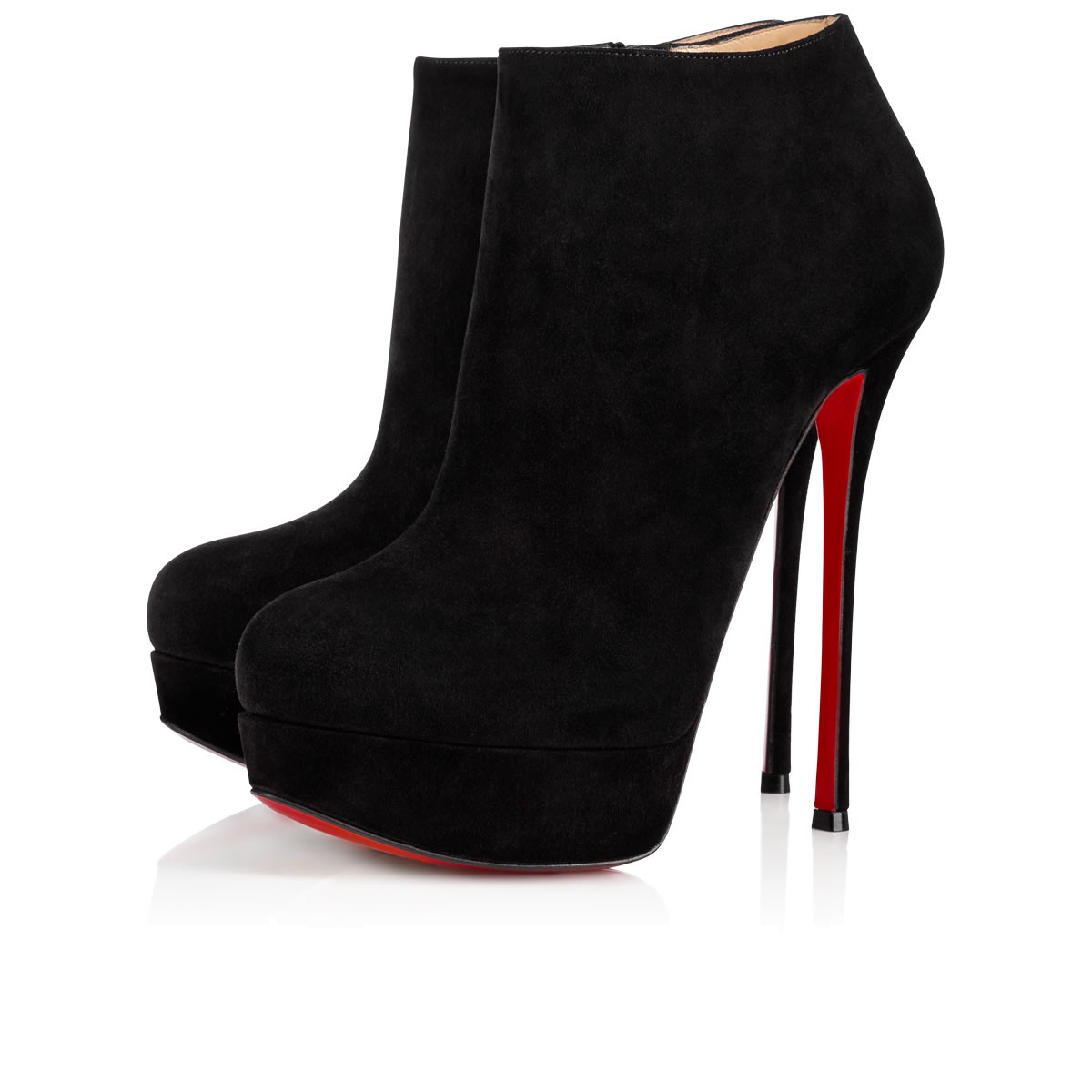How RHONY's Barbara Kavovit Shattered The Glass Ceiling Of The Construction Industry
The newest castmate of the Real Housewives of New York shares career and fashion advice.
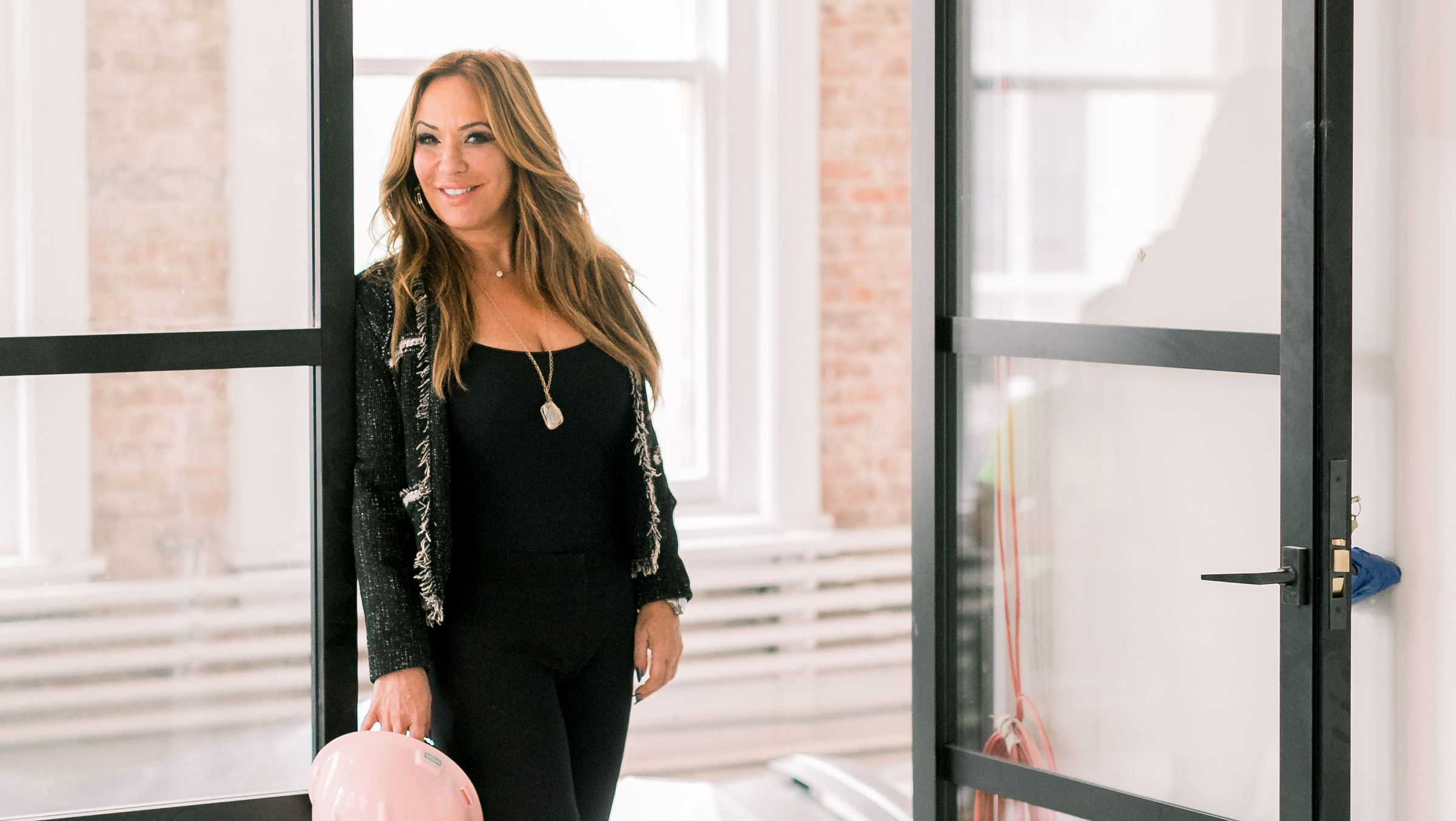

As a writer for Marie Claire, I'm lucky to have an all-female office. I can't imagine what it'd be like to be in a workplace that's predominantly male—being the only woman in the room sounds both terrifying and exciting. Barbara Kavovit has mastered it. She's basically New York's Queen of Construction, CEO and founder of Evergreen Construction, which offers construction management services to clients you've definitely heard of, like beauty company Coty. She also has a line of tools marketed toward women called DIYVA, and is the author of two books with a third novel (about a young woman who wants to build the tallest skyscraper in New York City) on the way. Even better—she's set to join the ladies of the Real Housewives of New York for its upcoming 11th season.
I sat down with Kavovit to discuss how she handles being a woman in a female-dominated field, her advice to women on advocating for themselves in the office, and, of course, which shoes she wears while on her feet all day at her construction sites.
"I was a very aggressive young lady, armed with a four-year degree, and I felt like I could do anything."
Kavovit got started in construction when she was in her 20s, fresh out of college. Her mother and friends constantly complained about contractors not showing up to work on their homes, and she decided to solve that problem herself. This, of course, was in the days before social media, so she had to promote herself and her business the old-school way.
"I made up some business cards with $60 at Minute Man Press. I didn't know anything about home improvement at the time, but I was resourceful. I looked in the local Penny Saver and I saw all these carpenters and electricians and plumbers looking to get work. So I listed all these home improvements on a business card, stood outside of a shopping center, and I went up to women as they came out of shopping, with all their groceries. I told them I can help them with any home repair that they had to do that they couldn't get done."
Basically, Kavovit served as the middleman: She would get a call from a client who needed their house painted or a new driveway, and Kavovit would call the handyman, the painter, whoever could get the job done. She would bring the contractors to the site herself. "I would pick them up in my dad's 1975 Buick Le Sabre, and make sure that they showed up for me—because they weren't showing up for [the clients]." The no-BS mindset paid off. Her father was bemused by this, and introduced her to an older gentleman who became a mentor of sorts. "He really thought the idea was kind of clever for a woman in construction."
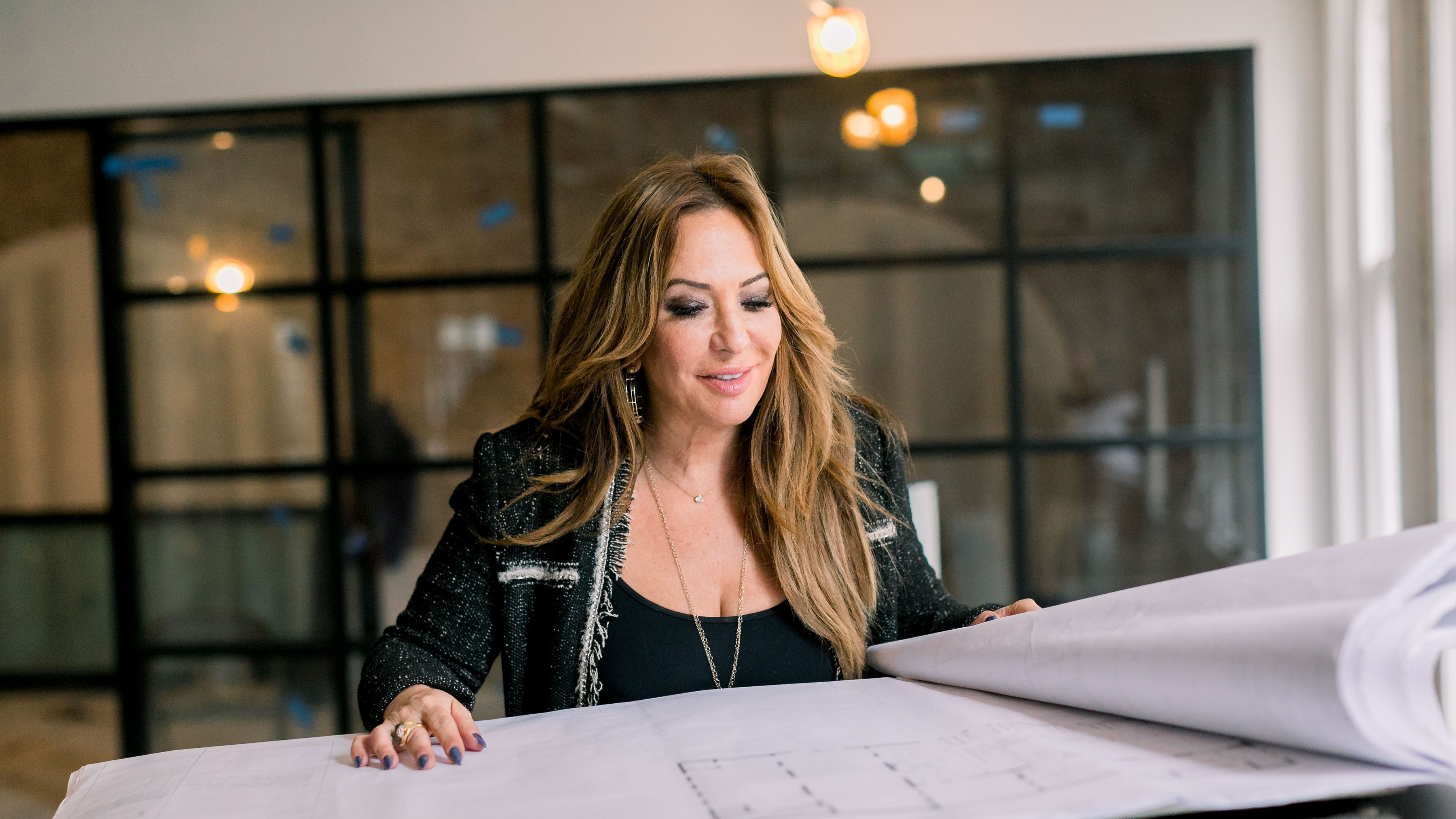
"Just make sure that you are 10 times better because, even in this business, to be 10 times better, you're still treated equal."
To say construction is a male-dominated field would be putting it far too lightly. When she first started in construction, Kavovit knew she would have to do everything for herself—she didn't have the luxury of family money or industry connections. So she joined organizations for women in construction and the real estate industry, and—back then—it was slim pickings.
"I joined an organization called Professional Women in Construction. And that was formed in the 90s by a woman who was... I think she was in the steel industry through her family. And through joining that, I started to meet companies who even back then...were trying to hire women and minority-owned businesses."
She also suggests women seek out a mentor, even though that wasn't her path. She struggled to find a female mentor because at the time, there weren't many women in her field. But she did find a man who took an interest in helping her learn about construction; it was important to her to know people who would help her become more knowledgeable and passionate about her trade.
"Find a mentor that believes in you, that is going to take the time to help teach you. And if you can't find that person, I mean, nowadays there's certainly organizations out there that you can find. You have the world at your fingertips."
Stay In The Know
Get exclusive access to fashion and beauty trends, hot-off-the-press celebrity news, and more.
That doesn't mean she hasn't seen her share of sexism, either. "When you're young, you're a target. And when people think you're naïve, and hungry for business, you're a target. So, you know, I can remember multiple times when certain men in the industry never had any intention of hiring me; they just wanted to date me, so they would lead me on.
And if somebody said, 'Hey. I want you to come to this job site. I have a build out or a renovation for you to do.' And I would go there with my tape measure—and this is in the very beginning stages—and I would actually estimate the job and send in a proposal of what it would cost. And then the answer would be, 'Hey. What are you doing tomorrow night?'"
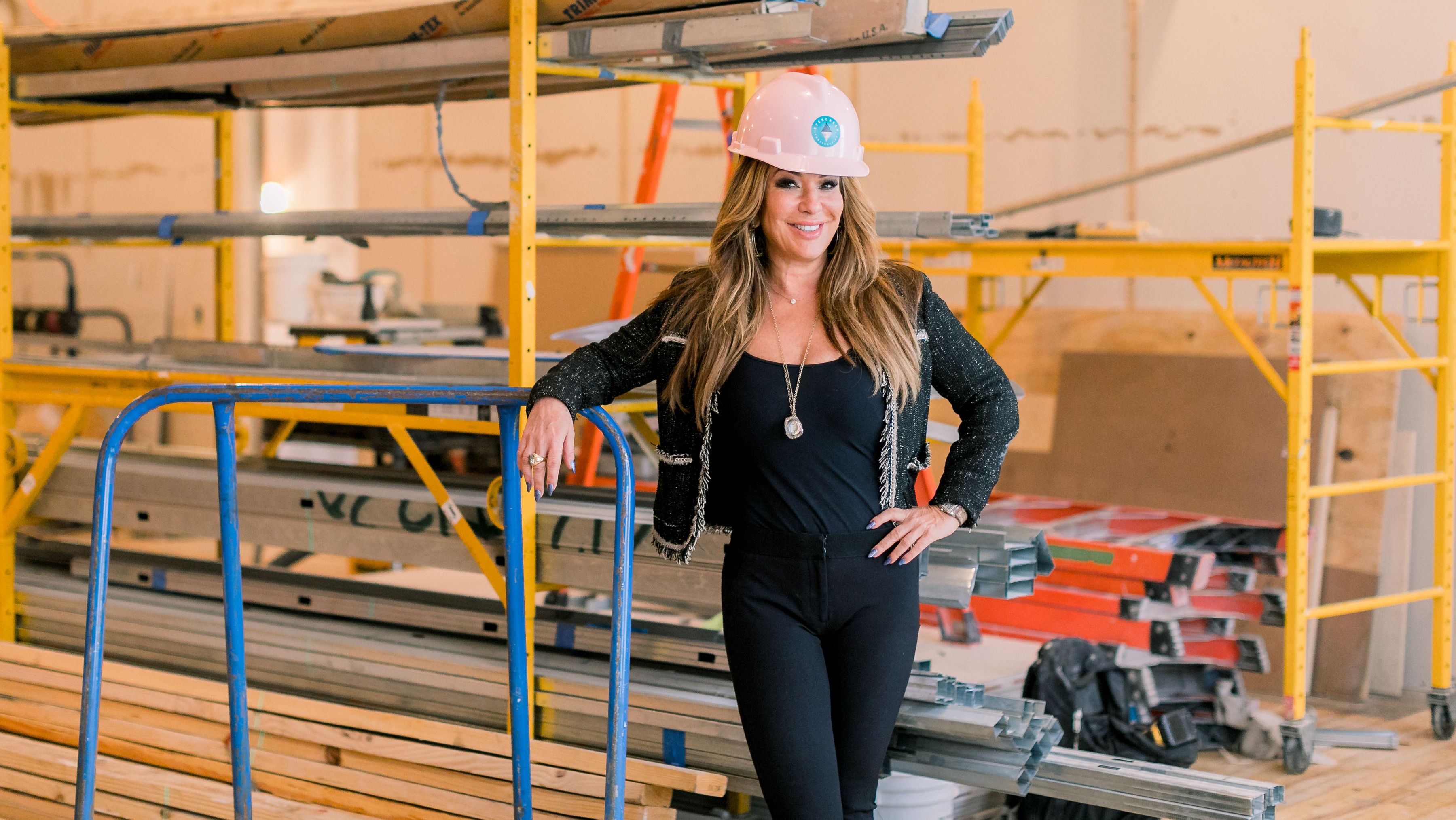
Kavovit has faced the same ignorant treatment in romantic settings, too. "Last night, I was on a date, and the guy, I was telling him that I'm in the construction business, and he said, 'Wow. A woman in construction.' I said, 'What rock are you living under?'"
Valid question, Barbara. Kavovit understands that the Good Ol' Boys Club still exists, and isn't showing any signs of disbanding soon. "Male chauvinistic people that are in this business, they still exist. Because they've been handed down through their grandparents to their fathers, and now the sons are in it. And the mentality still exists of that construction is no place for a woman. But I'm here to tell them that it is, and I'm taking projects away from them."
I asked Kavovit about how to deal with being underestimated due to your age or your gender. Her answer was simple: "The best way to deal with stuff like that is to be five, 10 times better. Kill them with knowledge. Kill them with your craft and your passion, and just your persona. When I go up against any man...men are intimidated by me, and they're intimidated for a reason. It's because I know more than they do half the time.
And I spend the time not just being that front person, the sales guy; I'm actually understanding what's going into each project: How long is it going to take before the light fixtures come? And how long is it going to take before I get the tin in the air? Because the tin is going to dictate how my dry wall is going to finish. It's really about knowing your craft and knowing people and understanding that I'm not the front person for a male, I'm actually running the business here."
"Whether I'm yelling or not, I want to look good while I'm doing it."
Of course, being a woman in a male-dominated workforce means you're constantly being reminded of that fact. Kavovit uses her femininity to her benefit, not to her detriment. Working in a male-dominant field like construction is bound to teach anyone how they perform their gender.
"It's all about keeping your femininity. There's not a day that goes by that I don't think about what I'm wearing on a job site. Because I want to look classy, I want to look the part, yes, but I also want to give that sexiness. Because when you're not afraid to express who you are, that just kind of exudes confidence. And when you have confidence, that demands respect. And on my job sites, or on any job site, the CEO has to demand respect. Being buttoned up is kind of important. If I'm wearing work boots on a job site, they're Gucci work boots, because they just look so good. I mean, have you ever seen Gucci work boots?"
Kavovit is on her feet on job sites constantly, and does it in heels. She knows a thing or two about a comfortable shoe that's also fashion-forward and can withstand a lot of wear and tear...and that key is to wear a heel with a large platform. A four-inch heel can seem like it's two-inches with a platform. She recommends Christian Louboutin platform heels and boots, wedges from Tod's, as well as her aforementioned Gucci boots. Another tip: If you like the shoes, invest in a good cobbler.
Kavovit is just as passionate about her beauty products as she is her footwear. She's famous for always having a perfectly on-point blowout, and has Oribe products to thank for that. She testifies that having a good hairbrush and a good blowdryer are the keys to maintaining a great blowout for days. She's a self-described "big makeup girl," dropping names like Urban Decay, Kevyn Aucoin, and Tom Ford. And don't forget Laura Mercier tinted moisturizer: "I probably kept the company in business with the tinted moisturizer."
When it comes down to it, Kavovit's definitely got an idea of what works for her. She's got a work uniform that consists of a jacket, jeans or slacks, boots, a nice blouse or t-shirt—but the jacket is the one thing she keeps consistent, day after day. "You're kind of ready for anything in a way. You're not over-dressed. I used to wear a lot of pinstriped suits when I first started in construction because I kind of wanted to look more like a man, I guess. But then I realized that I should embrace my femininity, and I shouldn't hide my curves, and it should really be embraced."
"I've already broken through the glass ceiling."
Kavovit wants to change the image of what people think about when they think of construction sites and contractors. She wants to do away with the mental images of the plumber in the dirty white tank top with his buttcrack hanging out. Construction is a pivotal industry—without construction, we wouldn't have buildings, and thus no businesses, no employees, and Kavovit wants the world to see how important of an industry it is. Her work is (pardon the pun) groundbreaking.
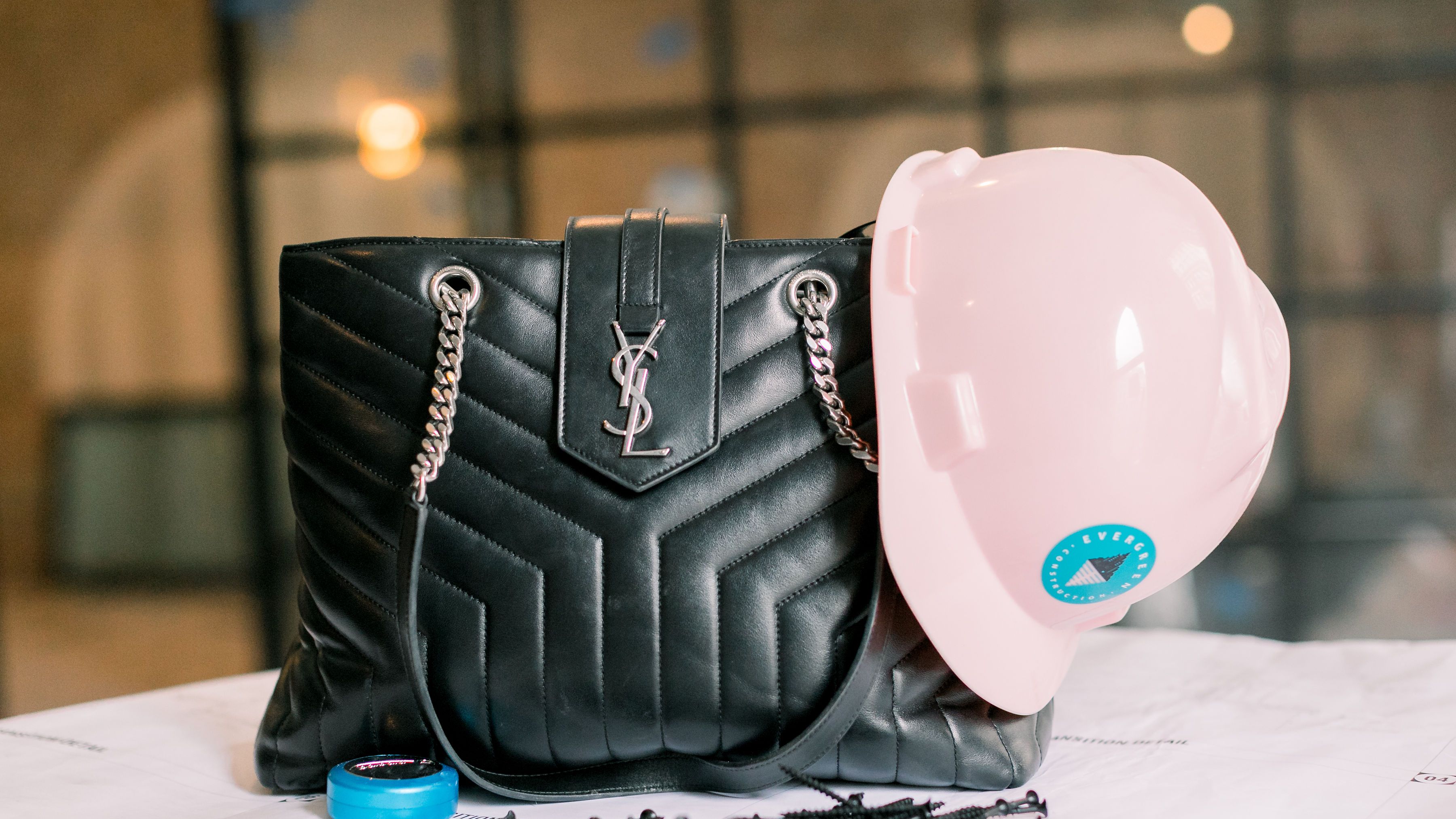
Kavovit's best advice for women in the business world: Know your strengths and weaknesses early on. "Don't try to be something you're not. Knowing yourself is the best way to target what you're going to be good at. Know how to stand up for yourself. Know what your worth is—and as long as you're confident and you know your product, you know yourself. And really, as a CEO, and as a woman, that's who I want to surround myself with and that's who I want to be surrounded by. I am a big believer in women, I think women are the best in everything. I really do. I think that they're the best workers. They're very detail-oriented, they're thorough, they're conscientious. They never leave any stone unturned. And if I could aspire one day to have all women working in the construction trade that would be great."
To women who might be intimidated or scared about entering a career path in which they're possibly going to be the only woman in the room, Kavovit hears you. She understands you. Maintain a poker face, don't get emotional, and build up a thick skin. It's not going to be easy, but that's the quickest path to success.
"You have to take the punch, you got to be beaten down, you have to keep getting back up. But that's how you get a thick skin, is by getting punched. And the more you get punched, and the more you get back up, the more your skin gets kind of hard and tough. It's more about the challenge of who's going to win. And if you want to win—okay?—in this game of construction or in business, or whatever field you're in, you have to grow the skin.
And then cry later in the bathroom, where nobody sees you."
For more stories like this, including celebrity news, beauty and fashion advice, savvy political commentary, and fascinating features, sign up for the Marie Claire newsletter.
Amanda Mitchell is a writer and podcaster with bylines at Marie Claire, OprahMag, Allure, Byrdie, Stylecaster, Bon Appetit, and more. Her work exists at the apex of beauty, pop culture, and absurdity. A human Funfetti cake, she watches too much television, and her favorite season is awards season. You can read more of her work at amandaelizabethmitchell.com or follow her on Instagram and Twitter @lochnessmanda.
-
 Let's Go, PPG, Fans! A New Peacock Series Starring the 'Love Island USA' Season 6 Cast Is Coming Soon
Let's Go, PPG, Fans! A New Peacock Series Starring the 'Love Island USA' Season 6 Cast Is Coming SoonWe're already clearing our summer schedules for 'Love Island: Beyond the Villa.'
By Quinci LeGardye
-
 Why Princess Diana Didn't Move to America
Why Princess Diana Didn't Move to AmericaThe late royal's friend opened up about the princess's American dream.
By Kristin Contino
-
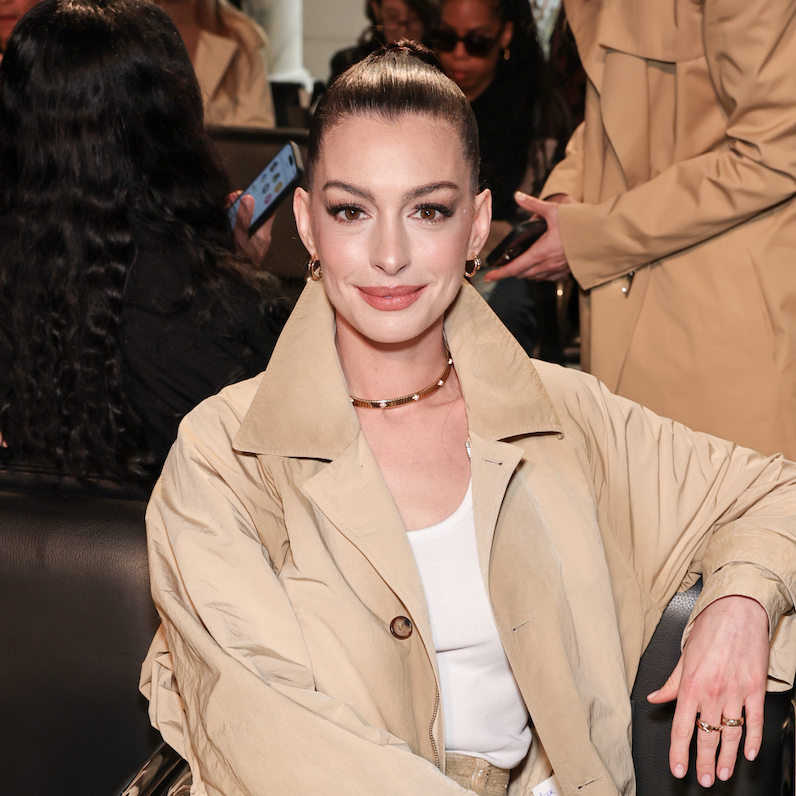 Anne Hathaway Doubles Down on Luxury's Favorite Neutral
Anne Hathaway Doubles Down on Luxury's Favorite NeutralShe painted herself in the timeless hue.
By Kelsey Stiegman
-
 Peloton’s Selena Samuela on Turning Tragedy Into Strength
Peloton’s Selena Samuela on Turning Tragedy Into StrengthBefore becoming a powerhouse cycling instructor, Selena Samuela was an immigrant trying to adjust to new environments and new versions of herself.
By Emily Tisch Sussman
-
 This Mutual Fund Firm Is Helping to Create a More Sustainable Future
This Mutual Fund Firm Is Helping to Create a More Sustainable FutureAmy Domini and her firm, Domini Impact Investments LLC, are inspiring a greater and greener world—one investor at a time.
By Sponsored
-
 Power Players Build on Success
Power Players Build on Success"The New Normal" left some brands stronger than ever. We asked then what lies ahead.
By Maria Ricapito
-
 Don't Stress! You Can Get in Good Shape Money-wise
Don't Stress! You Can Get in Good Shape Money-wiseFeatures Yes, maybe you eat paleo and have mastered crow pose, but do you practice financial wellness?
By Sallie Krawcheck
-
 The Book Club Revolution
The Book Club RevolutionLots of women are voracious readers. Other women are capitalizing on that.
By Lily Herman
-
 The Future of Women and Work
The Future of Women and WorkThe pandemic has completely upended how we do our jobs. This is Marie Claire's guide to navigating your career in a COVID-19 world.
By Megan DiTrolio
-
 Black-Owned Coworking Spaces Are Providing a Safe Haven for POC
Black-Owned Coworking Spaces Are Providing a Safe Haven for POCFor people of color, many of whom prefer to WFH, inclusive coworking spaces don't just offer a place to work—they cultivate community.
By Megan DiTrolio
-
 Where Did All My Work Friends Go?
Where Did All My Work Friends Go?The pandemic has forced our work friendships to evolve. Will they ever be the same?
By Rachel Epstein
